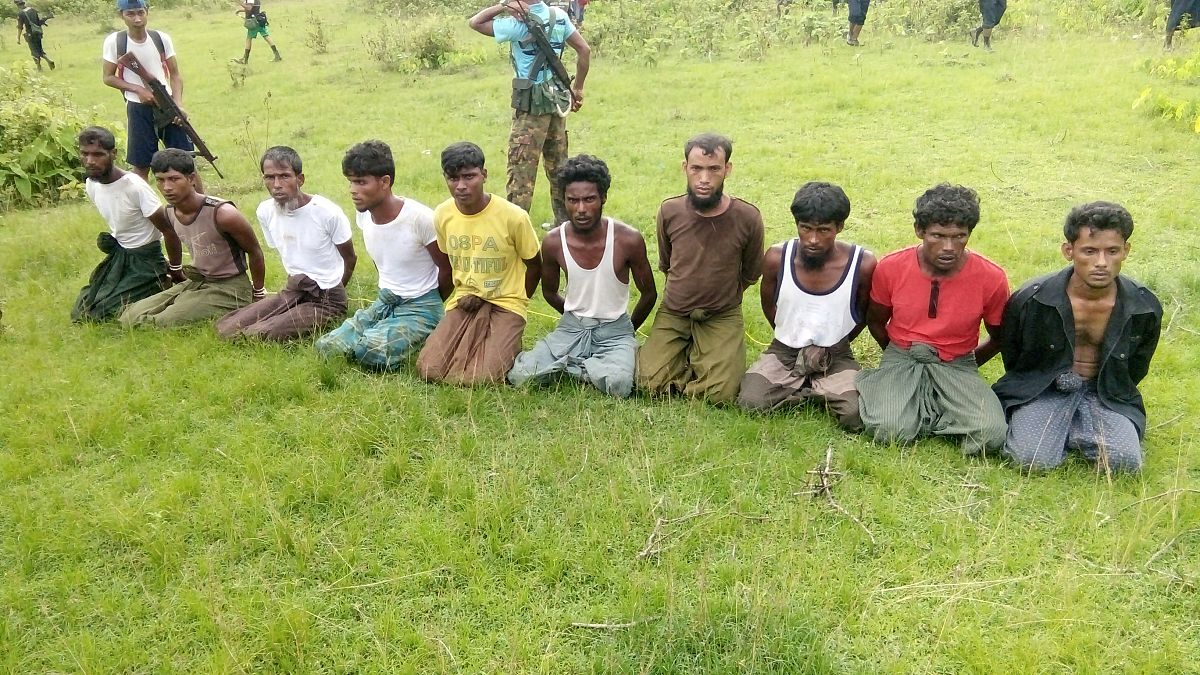Those responsible for atrocities against Rohingya Muslims must be held accountable before peace can blossom in Myanmar.
By Maha Akeel
The UN was right to call last week for genocide charges against Myanmar military commanders. Muslim world leaders (including the Organisation of Islamic Cooperation [OIC], sometimes called “the Muslim UN”) have repeatedly urged the international community to use the International Criminal Court to show that Rohingya Muslim lives matter, and have been busy gathering evidence and political will to make convictions possible.
The fact that these trials have not been forthcoming is not a sign of indifference: The world has been responsive to the harrowing pictures of nearly a million Rohingya refugees. Governments, NGOs and ordinary people around the globe were quick to sympathise and to proclaim that “something must be done”.
And there have been significant humanitarian responses in support of Bangladesh’s hosting of the displaced civilians. This is combined with ongoing political and diplomatic machinations leading to, in January of this year, an agreement for refugees to return voluntarily to Myanmar.
But perhaps where more activity is needed, is in following through on these efforts to ensure that there is a safe environment to which the Rohingya can return. This can only be achieved through delivering justice to the victims.
It is unreasonable to expect Rohingya refugees to return home when, not only are there often no homes to return to, but there is an ongoing hostile environment for them, with a complete lack of civil rights, international monitoring, or economic development.
There is a lot to do - but the first step is surely to create accountability for those responsible.
Every recent peacebuilding effort after a genocide, from Rwanda to Bosnia, has included justice for the victims. Myanmar should be no different. Those more recent efforts follow in the tradition established by Nuremberg: that justice must be served before peace can blossom, and lives can begin to be rebuilt.
It is unlikely, however, in the current diplomatic climate that Myanmar’s rulers will be brought to justice. Calls for Aung San Suu Kyi to resign - despite being repeated by the UN Human Rights Chief last week - have subsided.
And the Tatmadaw, Myanmar’s military ruling class, are currently out of reach of the International Criminal Court: since Myanmar is not a signatory, putting any of the generals on trial will require the consent of all the members of the UN Security Council - including China. And Chinese diplomatic cover has so far allowed the Rohingya genocide to unfold with very few consequences for the perpetrators.
It’s understandable that humanitarian principle and economic interest do not exist in isolation, and world powers like China, the European Union and others will continue to balance the two.
It is perhaps in complex situations like these that intergovernmental organisations like the UN and the OIC can come into their own. Although respecting of their member states’ interests, the view by a large intergovernmental body will inevitably be supranational.
The OIC has since last May, as the collective voice of the Muslim world, been working to gather and organise evidence of genocide. This has always been a key focus, because until the Rohingya can see justice being done, they will be reluctant to return home. This makes the repatriation deal - agreed at the start of the year - relatively ineffective.
And this evidence implicates many more individuals than the five generals named in last week’s UN report: it reaches down to the rank-and-file, but also across to the political and ideological support networks - including Aung San Suu Kyi and hate preachers like Ashin Wirathu - who made the genocide possible.
We at the OIC will share our experiences and evidence with any government or NGO that requests it, in the pursuit of justice for the Rohingya.
It has become a cliche to state that those who do not learn from history are doomed to repeat it. Although no two tragedies are ever exactly alike in dynamics and scope, there are clear parallels.
Most recently, Muslim Bosniak victims of the Srebrenica genocide were handed justice when Ratko Mladic was convicted in a UN Tribunal. Further back, the International Criminal Tribunal for Rwanda delivered convictions in the months and years following the Rwandan genocide. Both these justice mechanisms allowed neighbouring communities in the Balkans and Africa respectively to push the reset button on intercommunal relationships.
Will the Rohingya get their day in court too? It is the least we can do.
Maha Akeel is Director of Information at the Organisation of Islamic Cooperation (OIC).
Opinions expressed in View articles do not reflect those of euronews.
